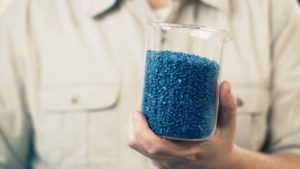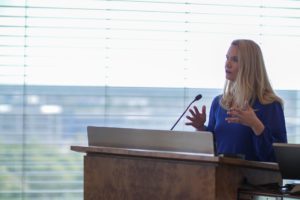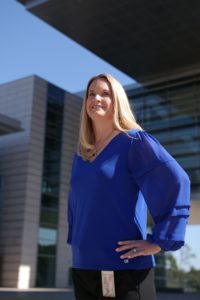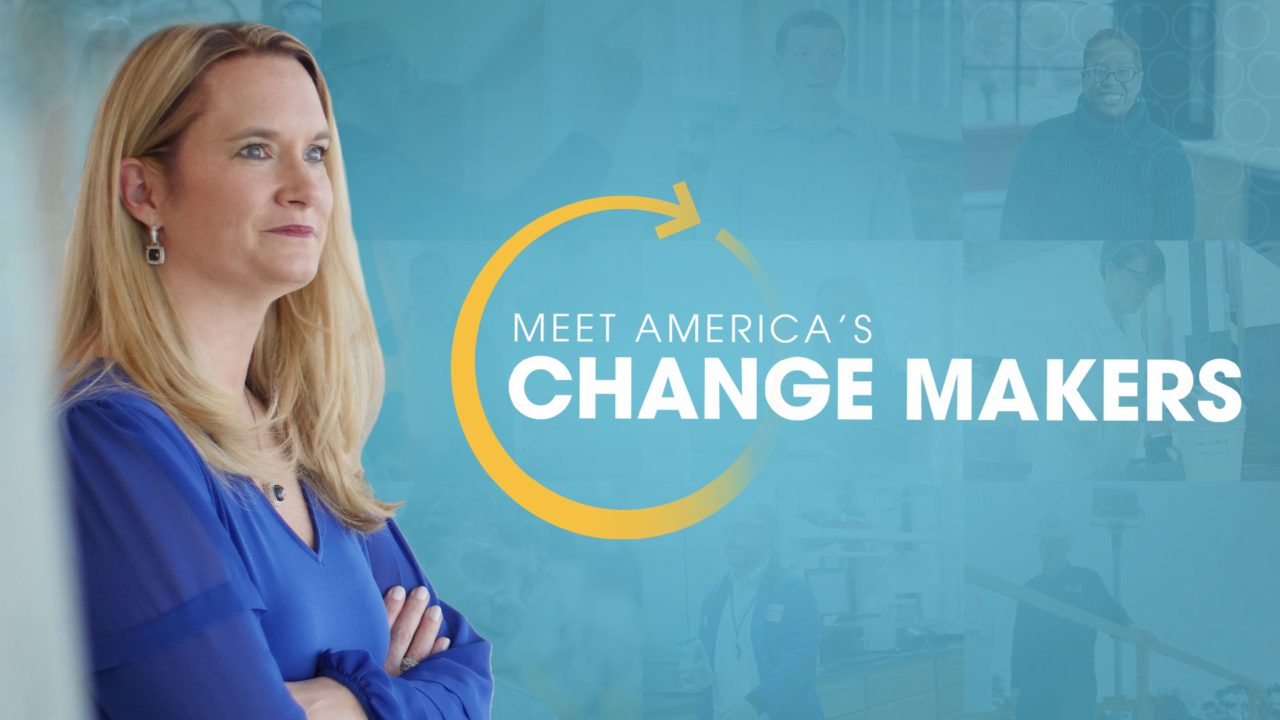Melanie’s family has enjoyed Florida’s beautiful beaches for more than a century and a half.

“I’m a seventh generation Floridian. Growing up, all of our activities revolved around going to the beach. It’s my happy place, where I want to go and rejuvenate.”
But like others, she’s noticed a growing problem that threatens the beach experience. Plastic waste. On the beach. And in the ocean.
“When you go to an environment such as the beach and you see waste – a lot of it plastic – you want to do what you can to help address it. You want everybody to have a similar peaceful experience when they visit these beautiful places. It’s really important that we, as a society, do what we can to help address the challenge of plastic waste.”
She knows that finding solutions is going to take everyone’s help.
“I think everyone can come together and agree that we don’t want plastic waste or any type of waste in the environment and in the parks, the oceans and beaches that we visit. There’s a role for all of us to play. Everyone from industry to government to NGOs to consumers like you and I should be supporting solutions in this space.”
Fortunately, Melanie and her company are in a position to make an impact.
As senior sustainability advisor at ExxonMobil, she’s working to help put in place public policies that can help encourage innovative technologies such as advanced recycling, technologies that can increase the types and amount of plastics that can be recycled.
Helping keep plastics where they belong: in our economy and out of our environment.
Meet Melanie. One of America’s Change Makers
Melanie sees advanced recycling as a key part of the solutions needed to address plastic waste in our environment.
“We view advanced recycling as a potential game changer for our industry. It uses chemistry to convert the molecules in used plastics into smaller molecules. And then these molecules become the raw material used to make brand new plastics and other products.”

“Effectively, advanced recycling is converting used plastics into raw materials that can be used to create new plastics and other products. And that’s really important for sensitive applications like food and medical where you want to have virgin quality materials used.”
While she differentiates advanced recycling from traditional mechanical recycling, she knows we need both.
“Mechanical recycling is more of a physical process that grinds the used plastics into smaller pieces. And then you melt it down and you form something new.”
“But not all used plastics can go through the mechanical recycling process. And that’s what’s really exciting about advanced recycling because it can allow you to address the hard-to-recycle plastics, like multi-layer films for food packaging. You need advanced recycling technologies that can help address the materials that can’t be recycled today.”
While billions of dollars have been announced to help jumpstart advanced recycling, there’s a roadblock to the growth of these technologies.
“The laws that are in place today are really supporting the traditional role of mechanical recycling. So, we need policy to be updated and new policies put in place that recognize advanced recycling as an innovative complement to mechanical recycling. They’re both very important.”
Melanie’s Ph.D. in Chemistry comes in handy as she navigates the complicated issues related to sustainability policies.

“Sustainability is such an exciting space. I first started to touch the sustainability area about 10 to 11 years ago. My personal role now is to support policy solutions that will enable advanced recycling technologies to be used in the recycling space.”
She’s optimistic about changing our nation’s laws.
“So in a year, two years from now, hopefully what we have is effective policy that recognizes there’s multiple technologies that can offer recycling solutions and help address the plastic waste challenge.”
“Recycling policy shouldn’t just be focused on plastics, it should be focused on all materials that can be recycled. If you have that in place, then that gets us even closer to a circular economy for our society.”
And she believes the size and scope of her company makes it well suited to make a difference.

“I’m excited about what ExxonMobil can help to bring to the table because we bring scalable solutions. While there’s all sorts of solutions that are needed, we’re really good at scale. And we can have a significant impact.”
“There’s a business case to be made, too. There’s a demand today for the certified circular polymers or recycled content and packaging. And there’s also a need to address plastic waste in the environment.”
“And so, by bringing forward advanced recycling technologies, we’re able to expand our business to help provide new products that society needs, as well as help address the environmental impact associated with plastic waste that goes to incineration or a landfill.”
She’s motivated. She’s got seven generations of Floridians in her blood. She wants to protect those beaches.
“Everybody can resonate with sustainability goals. We all want to live in a world where waste does not end up in the environment, or in landfills. Advanced recycling is just a really motivating space to be part of and to demonstrate how we as a company are providing solutions for the world.”
We wish Melanie and her team continued success.


